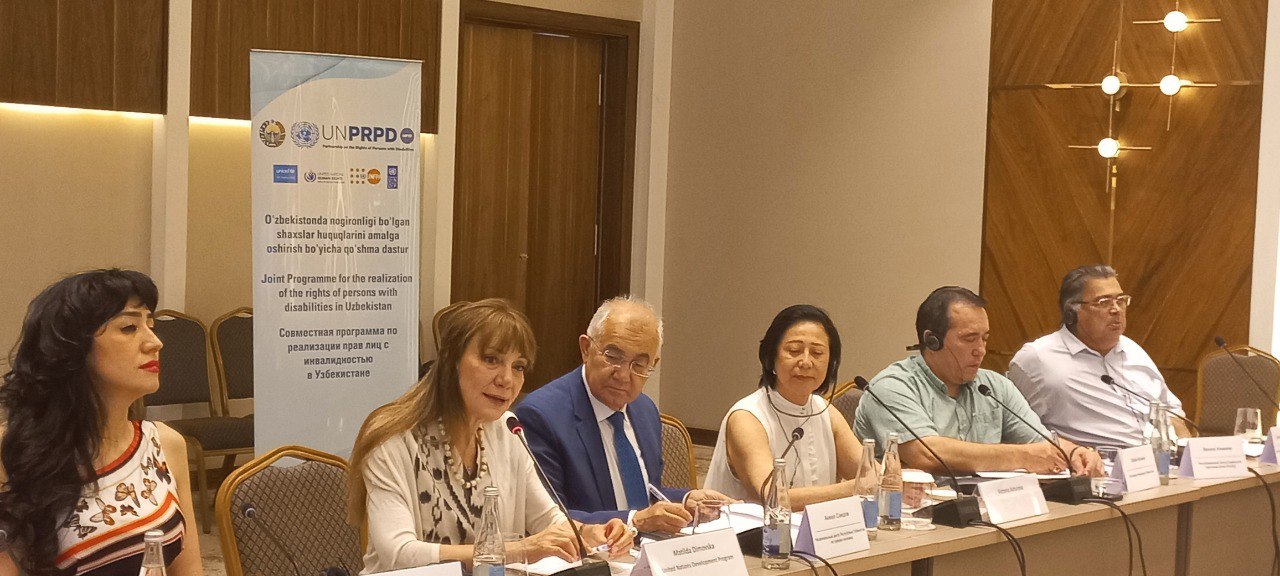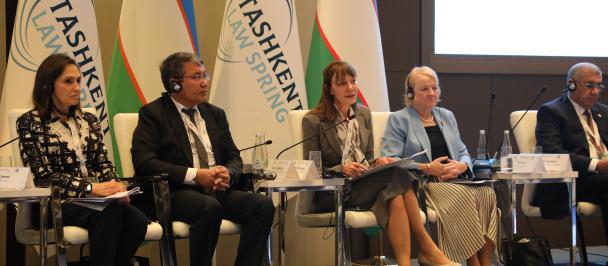Statement by UNDP Resident Representative Matilda Dimovska at the at round table discussion ‘NGOs and Alternative reporting on implementation of CRPD’
June 22, 2023

Assalomu alaykum, dear Prof. Saidov and Mr. Isakov, distinguished guests, and partners.
Uzbekistan announced its resolve to support the rights of people with disabilities with adoption of the 2020 Law on the rights of persons with disabilities and the accession to the United Nations Convention on the Rights of Persons with Disabilities in 2021.
We commend that since then, the country has promptly taken several steps to support, encourage and promote the respect of human rights of people with disabilities, including:
reforming of the disability assessment and determination system;
increasing social protection coverage for vulnerable population, including persons with disabilities;
adoption of the Concept of introduction of social model of disability to replace the outdated medical model;
adoption of the National Plan of Actions to implement the UN CRPD;
establishment of the dedicated Agency for Social Protection designed to offer comprehensive social protection of vulnerable people including persons with disabilities.
Positive results have been achieved, but we need to ensure sustainability and keep the high pace of promising reforms in this area. For this proper reporting, monitoring and evaluation mechanisms should be effectively maintained for CRPD implementation.
The country provides its regular report to the Committee on the Rights of Persons with Disabilities on how the human rights of people with disabilities are implemented in the country after the ratification of the Convention.
In addition to this, there is an independent alternative or parallel reporting mechanism that enables civil society to take an active role in holding governments accountable to their legally mandated obligations.
The alternative reporting is important because it may touch upon the issues which may have been overlooked or omitted in the official state reports.
It is also participatory and amplifies the voices of diverse groups who might be marginalized, and whose rights are violated.
And finally, it could provide alternative solutions, which are not currently implemented by the government.
Therefore, today we are here to discuss what should be included in the alternative report on implementation of CRPD. We will go over the issues, analyze what was done, identify the remaining gaps and find out the effective and practical solutions to ensure that the policies are inclusive and sustainable.
I believe today’s discussion will be productive with exchanges of experience, views, and challenges in the area of disability inclusion and disability rights in Uzbekistan.
I wish you a fruitful and productive discussion.
E’tiboringiz uchun katta rahmat!

 Locations
Locations
